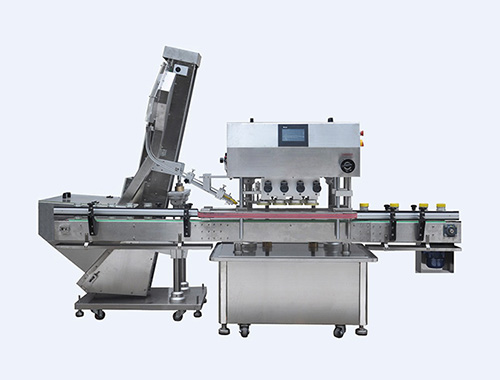In the acquisition process of any equipment, there are a lot of factors you need to consider. Associated with these factors are the key questions you need to ask yourself first. This makes sure that the machine you are purchasing will fit your application well. The same goes for when you are planning to buy a bottle capping machine for your specific project.
So in today’s discussion, we are going to list down the most important questions you should ask before buying a bottle capper. The following questions must also be answered by your manufacturer and not only you.

#1 What automation level do you need?
The automation level needed for a bottle capper will vary depending on a lot of factors. These factors include your production demand and how much labor is needed for the machine. Many capping machine manufacturers also design equipment that can be upgraded. This is to accommodate necessary changes in the machine’s automation level.
For the labor requirements, semi-automatic cappers will always need the help of an operator for each cycle. Meanwhile, automatic machines do not need a lot of interaction with the operator. They use power conveyors to move the bottles and cap delivery systems to deliver closures to the containers.
#2 How much is your allocated space for the bottle capping machine?
You should always consider your factory’s available space when purchasing any equipment. Semi-automatic cappers can come in either small handheld versions or large full-frame designs. You can use semi-automatic machines in almost anywhere. But, automatic ones usually work in line with various capping machinery like bottle fillers.
But do not think that small spaces will affect the efficiency of your capping process. The layout of your machine and production line helps make sure that your machine will fit in your space.
#3 What is the production capacity of the machine?
The production capacity of a capping machine is associated with its automation level.
For automated processes, you can precisely get the production capacity of the machine. This is because it runs consistently and the power conveyor moves at uniform speeds. For semi-automatic machines (handheld, tabletop, or full-frame ones), their production capacity will depend on the operator’s performance. Though you can estimate the number, operator factors such as fatigue, work ethic, and skill can affect the pace of the process.
In most cases, packagers with small production requirements use handheld cappers. This is not because of speed but to guarantee the repeatability, reliability, and consistency of seals while protecting the operators from injury and fatigue.
#4 Will the machine work properly on the closures you will be using?
Different closure types will also require different cappers. For example, newbie packagers might not be aware that they can use both chuck and spindle capping machines for the following closures:
- Twist off caps
- Continuously threaded caps
- Screw-on closures (seen in bottled water and also window cleaners, eye droppers, milk, nail polishes, etc.)
To make sure that the machine will work on your selected closures, discuss your needs with your can capping machine manufacturer. They can guide you in finding a machine best suited for your specific application. There are a lot of bottle capper manufacturers who offer machines that can handle any closure types.
Moreover, you need to choose a manufacturer that allows machine customization to accommodate your unique capping ideas. Through this, you will get a machine in which you will be truly satisfied with.
#5 Can the machine handle all of your container shapes and sizes?
You may think that the shapes and sizes of your bottles will not affect your options for capping machinery but you’re wrong. Capping machines can also be designed so that they can handle various bottle and closure shapes and sizes. This is important especially if you are handling different containers and caps.
Some modifications might be necessary for the capping machine to properly handle your bottle types. They can be customized to handle a wide variety of bottle dimensions. Spindle cappers can also be installed with additional gripper belts to stabilize small bottles during the capping process.
Some bottle cappers may even require adjustments or change of parts for every change in bottle and closure type. For this, it is recommended that you discuss your options with your chosen manufacturer.
Conclusion
Understanding your production line’s specific needs can help you find the most ideal machines for your application. You will have a lot of choices when searching for a capping machine. But, you need to remember that they will be your partners for a long time so you need to choose well. Here is a guide on the major factors to consider when choosing a can capping machine you can read.











